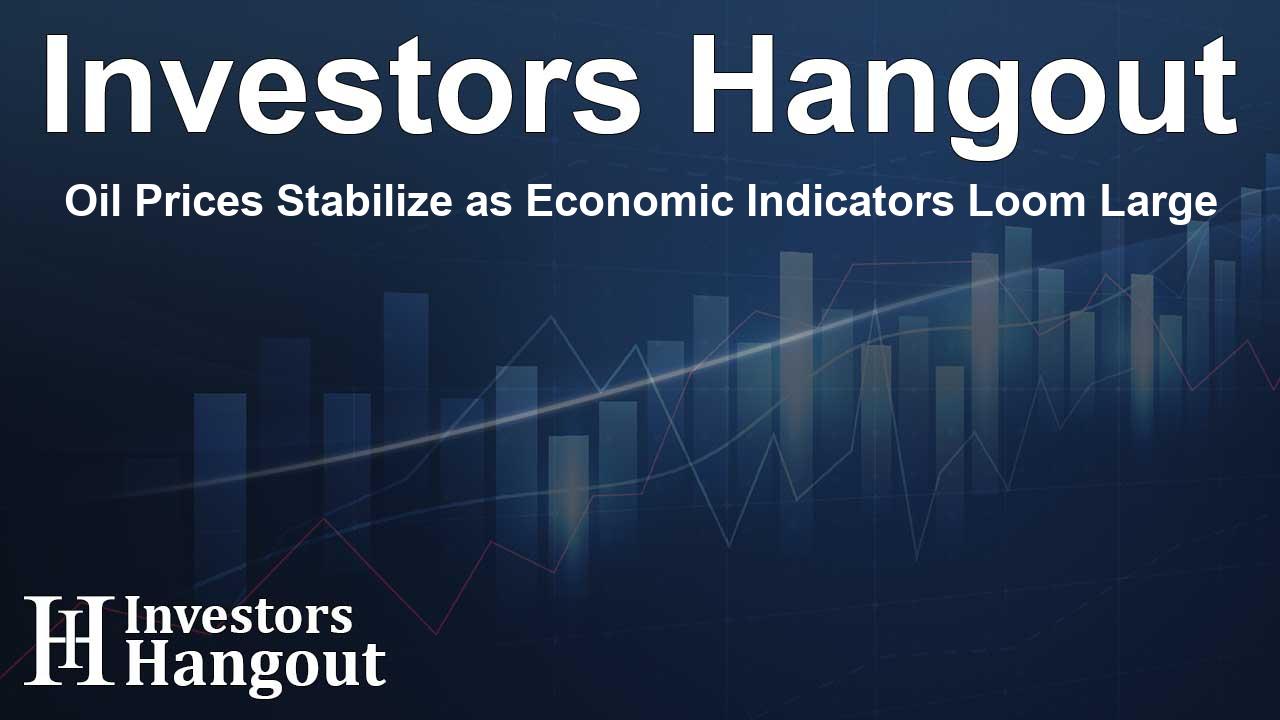Oil Prices Stabilize as Economic Indicators Loom Large

Oil Prices Stabilize Amid Economic Developments
Recently, oil prices have shown a steady trend following a significant uptick during recent trading sessions. Traders are closely monitoring important cues from upcoming events, including the U.S. presidential election and critical political meetings in China.
On a notable Monday, oil witnessed a jump in prices after the Organization of the Petroleum Exporting Countries and its allies (OPEC+) decided to postpone plans to ramp up production this year. This decision has created a tighter market outlook, adding to the complexities of global oil dynamics.
Despite these gains, oil prices are still hovering near a three-year low that was reached earlier this year. This downward pressure is largely attributed to concerns over slowing demand, particularly from China, which stands as the largest importer of crude oil.
Additionally, heightened political tensions in the Middle East have provided some limited support to oil prices. Noteworthy reports indicated that Iran may be preparing to engage in military action against Israel, while Israel continues its offensive actions against groups like Hamas and Hezbollah.
Eyes on China's National People’s Congress
The National People’s Congress (NPC) of China, which is the nation’s most influential political body, commenced a four-day meeting recently. At this meeting, key decisions regarding fiscal policies and support measures for the economy are on the agenda.
There is anticipation that the NPC will approve an increase in government spending, given that Beijing has proposed various fiscal strategies aimed at stimulating economic growth. However, the specifics of these fiscal measures remain unclear, as only the NPC has the authority to approve significant increases in spending.
Reports have suggested that China may consider approving approximately $1.4 trillion in additional debt over the next couple of years. Any indications of concrete stimulus measures arising from this meeting are likely to bolster the oil markets, as China's demand is essential for oil consumption globally. Moreover, concerns regarding declining demand in China have heavily influenced oil price stability.
U.S. Elections and Federal Reserve Meeting on the Horizon
Market participants are also focused on the developments in the United States, especially as the country approaches a highly competitive presidential election. Recent polling has indicated a close race between Donald Trump and Kamala Harris, leaving the final outcome uncertain.
Beyond the elections, attention will shift to an upcoming Federal Reserve meeting, where it is anticipated that the central bank might lower interest rates by 25 basis points. These upcoming events are expected to provide essential insights regarding the trends in the world's largest fuel consumer, especially as demand may potentially decrease with the onset of winter.
As these economic landscapes evolve, oil prices will continue to reflect the balance of geopolitical tensions, economic policies, and market sentiments.
Frequently Asked Questions
What has influenced the recent stability of oil prices?
Recent oil price stability can be attributed to OPEC+ halting production increases and traders awaiting economic cues from the U.S. elections and events in China.
How does China’s NPC meeting impact oil prices?
China’s NPC meeting is crucial as potential government spending and stimulus measures could support global oil demand, impacting oil pricing positively.
What geopolitical factors are affecting oil prices currently?
Heightened tensions in the Middle East, alongside military actions involving Iran and Israel, are contributing factors to fluctuations in oil prices.
Why are the U.S. elections significant for the oil market?
The U.S. elections may dictate economic policies influencing oil consumption, impacting demand during the winter months when demand typically fluctuates.
What are the implications of the Fed meeting on the oil market?
The anticipated rate cut by the Federal Reserve could stimulate economic activity, potentially enhancing demand for oil and thereby affecting its price positively.
About Investors Hangout
Investors Hangout is a leading online stock forum for financial discussion and learning, offering a wide range of free tools and resources. It draws in traders of all levels, who exchange market knowledge, investigate trading tactics, and keep an eye on industry developments in real time. Featuring financial articles, stock message boards, quotes, charts, company profiles, and live news updates. Through cooperative learning and a wealth of informational resources, it helps users from novices creating their first portfolios to experts honing their techniques. Join Investors Hangout today: https://investorshangout.com/
Disclaimer: The content of this article is solely for general informational purposes only; it does not represent legal, financial, or investment advice. Investors Hangout does not offer financial advice; the author is not a licensed financial advisor. Consult a qualified advisor before making any financial or investment decisions based on this article. The author's interpretation of publicly available data shapes the opinions presented here; as a result, they should not be taken as advice to purchase, sell, or hold any securities mentioned or any other investments. The author does not guarantee the accuracy, completeness, or timeliness of any material, providing it "as is." Information and market conditions may change; past performance is not indicative of future outcomes. If any of the material offered here is inaccurate, please contact us for corrections.